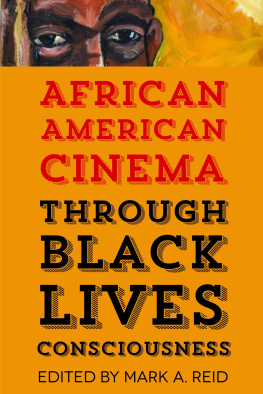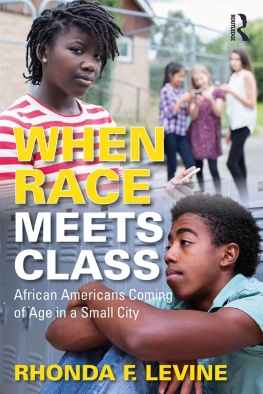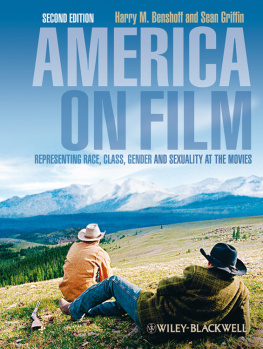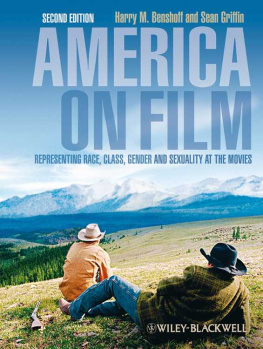First published 1997 by Routledge
Published 2014 by Routledge
2 Park Square, Milton Park, Abingdon, axon OX14 4RN
711 Third Avenue, New York, NY 10017, USA
Routledge is an imprint of the Taylor & Francis Group, an informa business
Copyright 1997 by Routledge
All rights reserved. No part of this book may be reprinted or reproduced or utilized in any form or by any electronic, mechanical, or other means, now known or hereafter invented, including photocopying and recording, or in any information storage or retrieval system, without permission in writing from the publishers.
Notes on Women, Work, and Society from Genes and Gender, vol. 3, E. Tobach and B. Rossoff, eds. (New York: Gordian Press, 1980). Reprinted in Freedomways (1980, 20: 1524) and Anthropology for the 90s, J. Cole, ed. (New York: Free Press, 1988).
Uneven Development: Class, Race, and Gender Before 1900 from Womens Work Development and the Division of Labor by Gender, E. Leacock and H. Safa, eds. (MA: Bergen and Garvey, 1986).
Minority Women, Work, and Health from Double Exposure, W. Chavkin, ed. (New York Monthly Review Press, 1984).
Anthropological Perspectives on the African American Family from The Black Family: Mental Health Perspectives, M. Fullilove, ed. (San Francisco: Department of Psychiatry, UCSF School of Medicine, 1986) and the Journal of Social Psychiatry (1986, 6(1): 1116).
Households Headed by Women: The Politics of Race, Class, and Gender from Conceiving the New World Order: The Global Politics of Reproduction, Ginsburg and Rapp, eds. (Berkeley: University of California Press, 1995).
Symbols, Ideology, and Women of Color from Women of Color in U.S. Society, Maxine Baca Zinn and Bonnie Dill, eds. (Philadelphia: Temple University Press, 1994).
Gender and the Application of Anthropological Knowledge to Public Policy in the United States from Gender and Anthropology: Critical Reviews for Reading and Teaching, Sandra Morgan, ed. (Washington, DC: American Anthropological Association, 1989).
Race, Inequality, and Transformation: Building on the Work of Eleanor Leacock from Identity (1994, 1(1): 12329).
Reclaiming Culture: The Dialectics of Identity from Race and Reason (1994, 1(1)).
Library of Congress Cataloging-in-Publication Data
Mullings, Leith.
On our own terms: race, class, and gender in the lives of African American women / Leith Mullings.
p. cm.
Includes bibliographical references and index.
ISBN 0-415-91285-7 (hbk.). ISBN 0-415-91286-5 (pbk.)
1. Afro-American womenSocial conditions. I. Title.
E185.86.M945 1996
305.48896073dc20 | 96-28853
CIP |
ISBN: 978-0-415-91285-3 (hbk)
Over the years in which these essays were written, innumerable colleagues, friends, comrades, and family members have given me help and support. In addition to those already mentioned in the text, I would like to thank Angela Gilliam for proposing the idea for the preface and for her insightful suggestions. Thanks also to June Foley for introducing me to the art of the memoir. Despite her very busy schedule, Barbara Ransby found time to give me invaluable comments on the Introduction and Mapping Gender. Many thanks to Camella Bazemore, Michelle Hays, Jeanne McGettigan, Patricia Tovar, and Alia Tyner for their help in preparing the manuscript.
Though this book centers on the experiences of women, I would like to acknowledge the many African American men, including my father, brother, and childrens father who have been very important in my life. These men, in their own ways, symbolize the perseverance, strength, and courage that characterizes many African American men.
In particular, I would like to thank Manning Marable, whose courageous writing has been an inspiration to me. It was he who first suggested that I put this volume together and I am especially grateful for the many hours we spent discussing and debating ideas, particularly those in the . It would have been difficult to complete this project without his consistent encouragement and principled intellectual sustenance. Asante sana.
This collection of articles represents an attempt, within the context of the academy and the academic endeavor, to illuminate the experiences of African American women and to theorize from the materiality of their lives to broader issues of political economy, family, representation, and transformation. The essays are informed both by my own experience as a participant observer and by my research into the lives of others. In this sense they reflect my theoretical, political, and personal journey as a woman of African descent in America. I have organized the essays around three themes that form the contours of my own experience and those of others: work, family, and resistance. My purpose in this preface is not to present an account of my own history but to describe selective experiencesparticularly those bearing on the interface between the academy and daily lifethat provide the context for these essays.
Like many African Americans, much of my life has been concerned with analyzing and challenging structures of inequality, which were initially expressed most graphically in the construction of race. Race mediated every move for most of us growing up in the 1950s and 1960s; it was only in the company of other people of African descent that race could cease to exist. Not surprisingly, the search for the cure for inequality has dominated my intellectual life. Engagement in a project of liberation can be a powerful stimulant; it may facilitate the development of oppositional paradigms unrestrained by the necessity to defend the status quo. However, I cannot help but think that one of the ranking crimes of racism is the tremendous squander of human potential: the intellectual time and energy spent theorizing this construct that must, in the course of human history, be seen as one of the more bizarre approaches to human organization. This is a waste of human creativity that could otherwise be employed navigating cultures, finding the cure for cancer, discovering unlimited energy or food sources for the peoples of the world, or creating art forms to make the spirit soar.
The African American intellectual tradition differs from mainstream Euro-American scholarship in key ways. First, it is corrective. Mainstream scholarship establishes the parameters that frame the discourse about African Americans. African American scholars are often compelled to expend our creative energies answering stupid questions posed by others; striving, often with no more success than Sisyphus, to push the boundaries of paradigms steeped in racism, sexism, ethnocentrism, and cold contempt.
Imprisoned in the preoccupation of responding, we often rebel and refuse to answer. But, as the existentialists say, there is no exit. We must challenge until we are able to transform the power relations that hold the discourse in place, and we must battle on grounds not of our own choosingthe terrain of unmarked white ethnicity. To refuse to engage the ideological offensive would be to abandon large numbers of people to the machinations of racist policy, unleavened by intellectual opposition.







